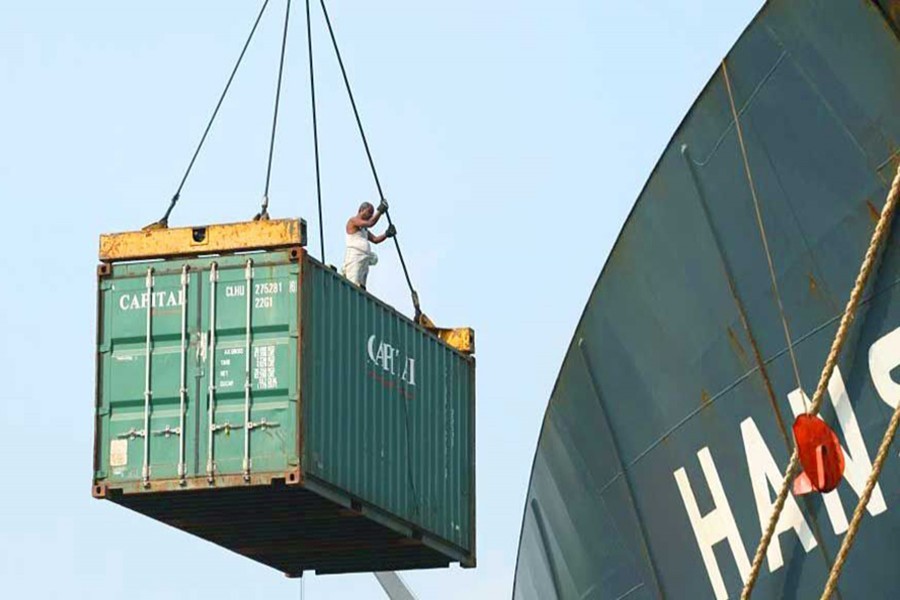The country's single-month import payments reached nearly US$6.50 billion in January 2022, following higher purchase of textile items from the global market to supply buyers' orders properly.
The settlement of letters of credit (LCs), generally known as actual import, in terms of value, rose by nearly 7.0 per cent to $6.41 billion in January - from nearly $6.0 billion in the previous month, according to the central bank's latest statistics. It was $5.54 billion in November 2021.
"Bangladesh's import expenses may increase further, if the ongoing war between Russia and Ukraine continues," a senior official of the Bangladesh Bank (BB) told the FE while predicting the possible trend of imports.
He also said higher imports are helping to boost export earnings as well as to implement infrastructure development projects across the country.
"The existing trend of imports may continue in the coming months, as the overall economic activities are fully resuming after more than one-year of sluggishness, mainly caused by the Covid-19 pandemic."
On the other hand, opening of LCs, generally known as import orders, increased by 11.18 per cent to $6.86 billion in January - from $6.17 billion a month before. It was $6.06 billion in November 2021.
Besides, high prices of essential commodities, including petroleum products, in the global market have also pushed up the country's import payments during the period under review, according to the central banker.
Meanwhile, imports of textile products under back-to-back LC settlement increased nearly 8.0 per cent to $818.42 million in January from $758.33 million a month before, the BB data showed.
Talking to the FE, Mohammad Hatem, executive president of the Bangladesh Knitwear Manufacturers and Exporters Association (BKMEA), said imports of textile products under back-to-back LCs increased during the period under review - following rise in prices of raw materials in the international market as well as buying orders of apparel products.
"Some entrepreneurs of apparel sector prefer to bring fabrics from the overseas sources than procuring the items from the local market because of lower prices," Mr Hatem said while explaining the higher imports.
The existing trend of such imports under back-to-back LCs may continue until March, according to Sayeed Ahmad Chowdhury, director (operations) of Square Denims.
"The imports under back-to-back LCs may fall from April."
He also predicted that Bangladesh's apparel exports may be slightly hampered, if the war between Russia and Ukraine continues.
On the other hand, actual imports of fuel-oils dropped by 39.63 per cent to $215.67 million in January from $357.27 million in the previous month, according to a senior official of the state-run Bangladesh Petroleum Corporation (BPC).
"We could not import adequate petroleum products in January because of procedural problems," the BPC official said while explaining the lower imports.
He also said the imports of petroleum products increased significantly in February, and would continue until March - mainly due to seasonal impact.
Bangladesh may spend up to $4.50 billion - for importing petroleum products only - by the end of the current fiscal year (FY), 2021-22, if the upward trend of fuel-oil prices continues in the international market, according to the BPC official.
However, imports of capital machinery or industrial equipment used for production dropped by over 40 per cent to $361.59 million in January against $606.21 million a month before, the official data showed.


